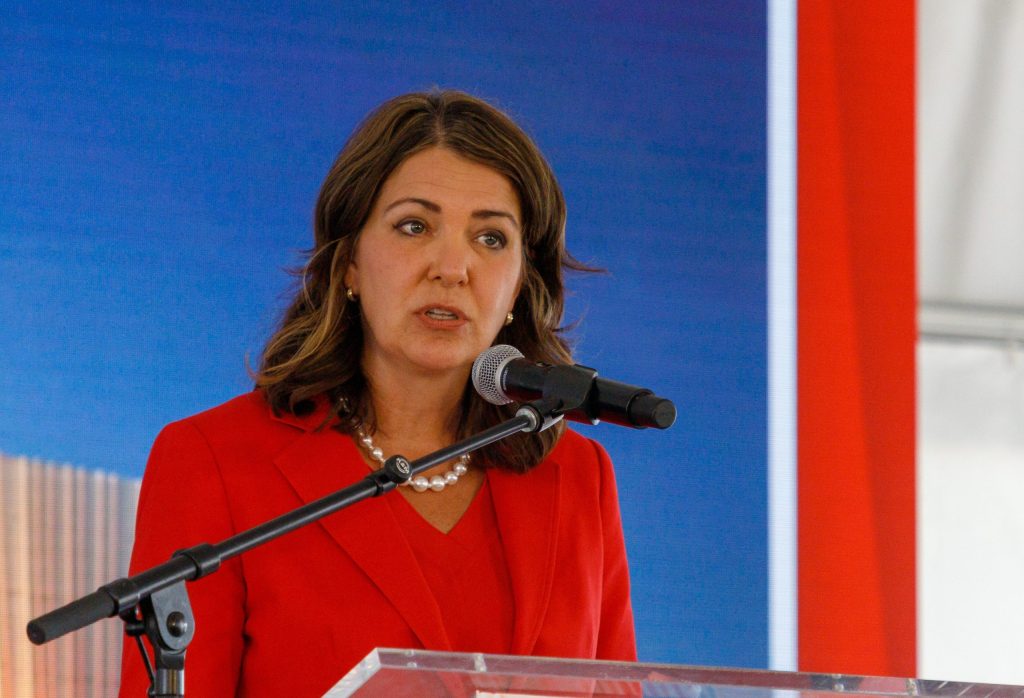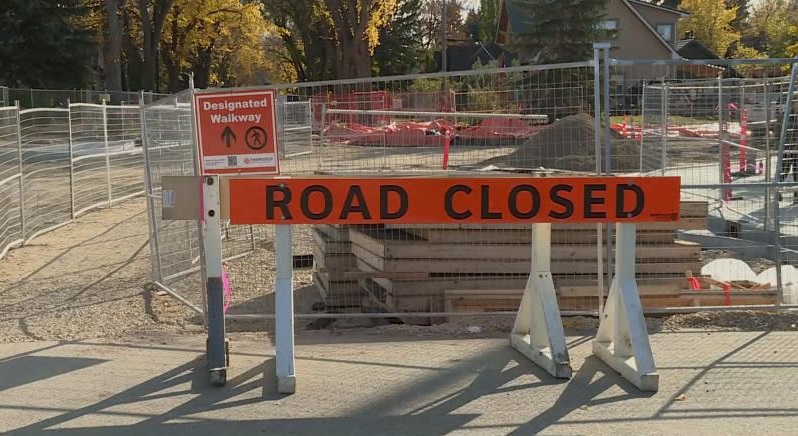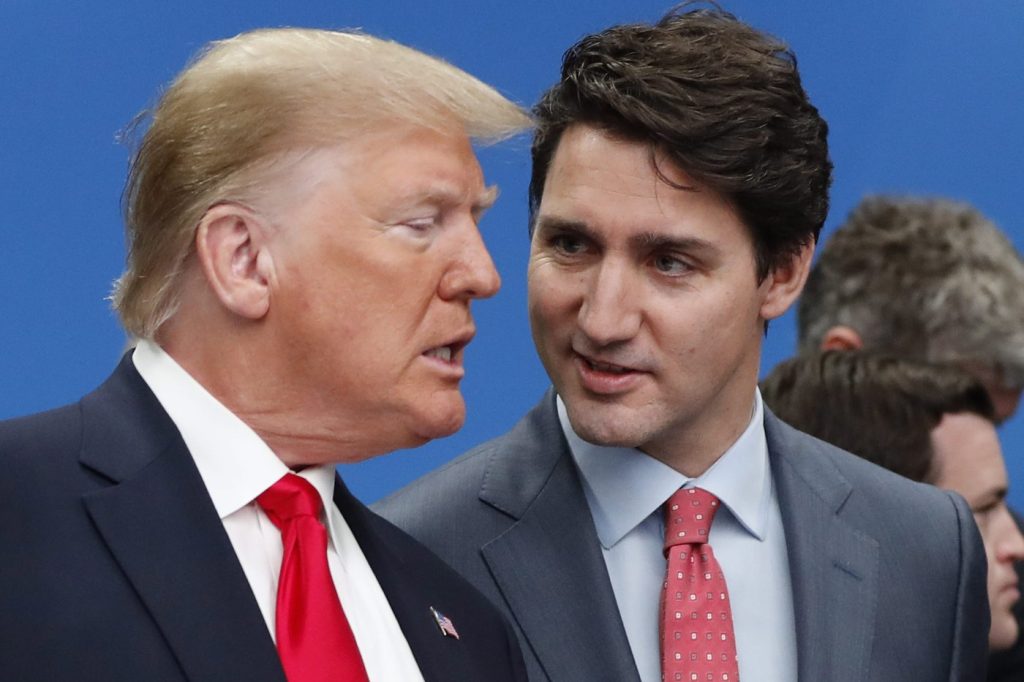2024 U.S. election prompting more offers of help, volunteering from Canada residents: organizers
Posted October 26, 2024 9:55 am.
Last Updated October 26, 2024 11:36 am.
As an intense 2024 U.S. election showdown draws to a close in just a matter of days, organizers with American political groups say they are seeing an uptick in offers of help and volunteering from residents in Canada.
“I’ve had many calls, I mean I get many calls a day, and I would say probably 10 to 15 per cent of the calls I get are from Canadians that want to help,” Lee Strickland, the chair of Democrats Abroad Toronto, told CityNews.
“In the last couple of months since Kamala came on board, they say, ‘How can I help?'”
Georganne Burke, the Canada chapter lead with Republican Overseas, shared a similar sentiment about election engagement among people north of the border.
“This election is the first time I’ve seen this kind of real strong interest in going down to help,” she said.
“One of the things that’s changed somewhat in Canada is that more Canadians now, particularly younger Canadians, are willing to express their support for Donald Trump.”
Strickland said he recently has been lining people to go to Erie County in Pennsylvania, which is about 170 kilometres southwest of Buffalo, N.Y. and beside the Ohio border.
Pennsylvania, along with other battleground states on the Great Lakes like Michigan and Wisconsin, has been cited as results to watch as both the Democrats and Republicans will count on the electoral college votes from one or more of these states to propel their candidates to the White House.
“It could decide the whole state it’s just that close. It could swing one way or another,” Strickland said, noting he mailed in his ballot to vote in the same region.
He added the Windsor branch of Democrats Abroad has been working to connect volunteers with the Michigan state party, particularly in Detroit (which falls under Wayne County).
The other major part of the organization’s strategy has been heavily promoting voting by residents who live in Canada.
“If all the … U.S. citizens living abroad were a state, it would be the 11th-largest state,” Strickland said, adding there are approximately 700,000 eligible U.S. citizens who live in Canada alone that are eligible to cast a ballot by mail.
“The number one thing that Canadian citizens can do is to tell their American friends that are living here to vote.”
Burke said her group has also been trying to raise awareness about voting during the 2024 election.
“We really don’t have access to lists, unlike in Canada — the political parties have voter lists, and … in the U.S. every district has its own voter list,” she said, noting social media has been essential for getting the word out.
“We have a Facebook group which has thousands and thousands and thousands of members in it and that is where we give them all the information that we have: how to vote, how to register to vote (and) answer any questions they have.”
One of the issues coming out of their social media in chapters across the world as part of the 2024 election, Burke said, is the issue of citizens living abroad facing double taxation.
She said a tax agreement means it’s not “a huge problem in Canada,” but highlighted the issue as an example of where the advocacy from international residents was able to get the party to look into the matter.
As for mobilizing support to send south of the border, she said she has friends and contacts who are door-knocking and dropping off campaign literature in Michigan, Pennsylvania, Virginia and Indiana.
“These are Canadians who have gone just down for the volunteer, even if it was only for a few days, but they really wanted to help in some way,” Burke said, adding others have gone to work the phones at campaign offices.
Both representatives had warnings when asked further about the assistance non-American citizens can offer.
“They cannot get paid to do this … they can’t do that legally and you’re not going to break the law,” Burke said.
“Canadians cannot donate money and we cannot accept it. It’s illegal, so we don’t, but you can donate your time and help out,” Strickland said.
The 2024 U.S. election campaign and what’s at stake
So what has it been like for supporters outside of the country to watch the campaign, what do they think of how it has gone so far and what could be behind the motivations for some to want to help?
For Strickland, he had praise for President Joe Biden after dropping out of the race and called that decision a “really phenomenal event.”
“Obviously, from that first debate, everybody was down in the dumps. My heart went down in my stomach when I saw that. I love Joe Biden. I voted for him. I think he’s an absolutely excellent guy [with] great ideas, but unfortunately Democrats have to get somebody that can win,” he said.
“His legacy will be that to support Kamala Harris going forward. I think he would have had a tough time.”
When asked what a potential administration under Harris would mean for Canada over the next four years should she assume the presidency on Jan. 20, Strickland said he believes she would be willing to work with Republicans in governing and that a potential administration under Trump makes him nervous.
“Kamala, when you compare her to what he’s doing, he wants retribution,” he said, going on to talk about the potential impacts to cross-border trade.
“I think you have to think about what Donald Trump would be, and that would be for Canada a disaster.
“The United States is the elephant in the room for Canada, and he’s talking about putting 10-to-20-per-cent tariffs on things going back and forth across the borders — that’s all borders from all countries — economically, that would be absolutely devastating for Canada and the world.”
Burke disputed the notion a Trump administration would be bad for Canada, pointing to Canada’s resources that are sought after in the U.S.
“I am interested when I read people freaking out about, ‘Oh my god, the world will end if Donald Trump becomes the president, the world will end for Canada.’ Well, it didn’t end for Canada between 2016 and 2020, it won’t end for Canada now,” she said.
“Donald Trump is a businessman. If we keep that in mind, he’s very business-focused, and of course his first priority as it should be is the United States. If we keep that in mind, we can portray ourselves in Canada as being a friendly neighbour important to them.”
As for what might be motivating more people to come out publicly in favour of Trump in 2024, Burke said she believes there is an appetite for change on both sides of the border. She argued there is a “very big dissatisfaction” with the federal Liberal government.
“The Democrats have tried to portray Kamala Harris as the change candidate, but people are saying, ‘Well, wait a minute, change from what? She was the vice-president for four years, so how has that changed?” Burke said.
“I just think it’s the same dynamic as people are fed up with the approach that’s being taken by these current governments, who are both quite similar in fact to each other: their attitudes, their narratives and their basic policies,” she added. “I think people are ready to see something different and it isn’t that it’s more conservative. They want more freedom.”
When it comes to the 2024 race for the White House, political experts said this campaign isn’t like any other.
“The word that I’ve used a lot is unprecedented,” Matthew Lebo, a political science professor with Western University, told CityNews.
“On both sides of the aisle, we’ve never seen anything like this. First of all, the Democratic contender dropping out rather late in the race … (and) on the Republican side, somebody who’s been impeached, twice convicted, deciding he wants to run again,” Melissa Haussman, a retired political science professor with Carleton University who lives in Florida and has worked on Democratic campaigns, said.
Lebo said under the electoral college system and current political trends, he said it will likely fall to just seven of the 50 states to determine who will be successful.
“Wisconsin, Pennsylvania, Michigan, Arizona, Nevada, Georgia and North Carolina, all of those are within two points,” he said, referring to public opinion polling.
“Pennsylvania has 19 electoral votes that might be decided by less than 100,000 votes.
“It’s just tiny changes in those seven states, so Joe Biden won by seven million votes in 2020 but if you moved about 40,000 votes within six states, he would have lost.”
But regardless of whoever wins the election, Lebo said Canada will feel those decisions.
“Canada is next the United States and needs democratic stability there more than anything. Democratic, economic stability is the most important thing compared to how the trade relationship might be different between the Trump administration versus a Harris administration,” he said. “Canada’s security arrangements depend on the United States and NATO being, you know, a willing and generous partner.”
“For Canadians who are worried about friends and relatives in Ukraine, then this makes the election makes a big difference,” he added.
Haussman said she expects continuity on the trade front since Canada and the U.S. have “incredibly intertwined” economies, but “the rhetoric” will be different.
“On one hand, we can say that Trump was much more overtly punitive to Canada. When he decided to renegotiate the USMCA (formerly NAFTA) and get that through a lot of that was at a cost to Canada, particularly the increase in the rules of origin on cars et cetera,” she said.
“On the other hand, Biden has not undone all of Trump’s tariffs, so there is continuity in policy. It’s sort of like turning an oil tanker around. Basically, not a ton of things will change in four years, frankly, depending on who wins, but some things may change around the edges.”








